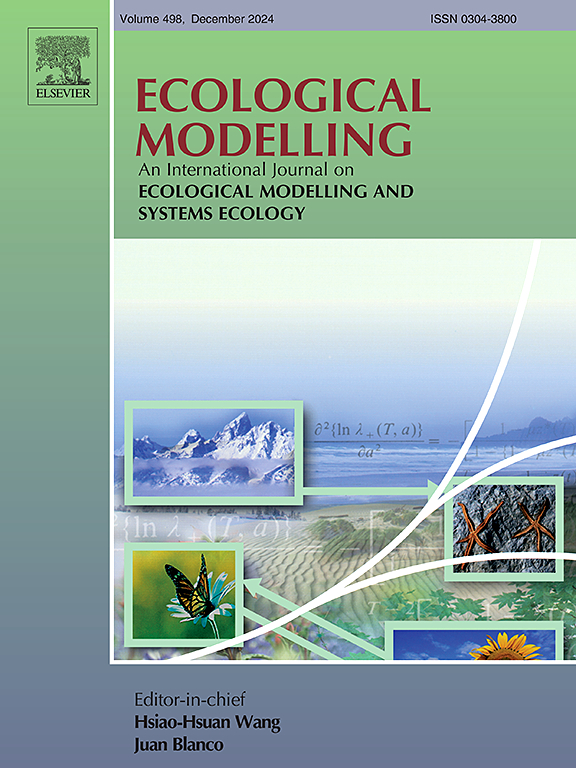能源净能源回报趋势对气候和社会的影响:重新审视H.T.和伊丽莎白·奥达姆的“繁荣之路”
IF 3.2
3区 环境科学与生态学
Q2 ECOLOGY
引用次数: 0
摘要
h·t·奥达姆和伊丽莎白·奥达姆合著的《繁荣之路》出版于近25年前。它包含了对未来能源使用和社会的重要预测。这项工作重新审视了其中的一些预测,以及支持这些预测的全球趋势和科学原理。尽管《系统自组织实现最大(em)功率》一书的指导思想和基础理论与该书出版时一样具有重要意义,但仍存在一些未预见到的重大发展,例如太阳能和电池存储技术的快速进步,以及化石燃料水力压裂技术的兴起。虽然Odum所预见的全球能源峰值路径,即能源使用和相关社会因素(如人口)的急剧下降尚未发生,但它仍然是可信的。目前的工作理论认为,与《繁荣之路》中预测的急剧下降或崩溃相比,更有可能的未来将是全球能源使用/经济的缓慢增长或稳定状态。这一结论是基于已观察到的和预计的全球能源基础的能源投资回报率下降趋势,这是由化石燃料质量下降和向可再生能源的转移所驱动的,这些能源回报率有所提高,但没有也不太可能达到过去150年全球能源使用爆炸式增长期间化石燃料的历史回报率。本文章由计算机程序翻译,如有差异,请以英文原文为准。
Implications of trends in net energy return of energy sources for climate and society: revisiting H.T. and Elisabeth Odum’s “a prosperous way down”
A Prosperous Way Down, a book by H.T. and Elisabeth Odum, was published nearly 25 years ago. It contained important predictions for the future of energy use and society. This work revisits some of those predictions and the global trends and scientific principles that were presented supporting them. While the guidance and fundamental theory underlying the book of system self-organization for maximum (em)power are just as relevant today as when the book was published, there are significant developments not foreseen, such as the rapid technological improvements in solar and battery storage and the rise of hydraulic fracturing for fossil fuels. While Odum’s foreseen global pathway of peak energy with a steep decline in energy use and related social elements such as the human population have not yet occurred, it remains plausible. The present work theorizes that a more likely future will be characterized by slow growth or steady state in global energy use/economies, compared to the steep descent or crash predicted in A Prosperous Way Down. This conclusion is made based on the observed and expected declining trend in energy return on investment for the global energy base, driven by declining quality of fossil fuel and shifting to renewable energy sources, that have improved in energy return, but have not and are not likely to achieve the historical rate of return observed in fossil fuels during the period of explosive global growth in energy use over the past 150 years.
求助全文
通过发布文献求助,成功后即可免费获取论文全文。
去求助
来源期刊

Ecological Modelling
环境科学-生态学
CiteScore
5.60
自引率
6.50%
发文量
259
审稿时长
69 days
期刊介绍:
The journal is concerned with the use of mathematical models and systems analysis for the description of ecological processes and for the sustainable management of resources. Human activity and well-being are dependent on and integrated with the functioning of ecosystems and the services they provide. We aim to understand these basic ecosystem functions using mathematical and conceptual modelling, systems analysis, thermodynamics, computer simulations, and ecological theory. This leads to a preference for process-based models embedded in theory with explicit causative agents as opposed to strictly statistical or correlative descriptions. These modelling methods can be applied to a wide spectrum of issues ranging from basic ecology to human ecology to socio-ecological systems. The journal welcomes research articles, short communications, review articles, letters to the editor, book reviews, and other communications. The journal also supports the activities of the [International Society of Ecological Modelling (ISEM)](http://www.isemna.org/).
 求助内容:
求助内容: 应助结果提醒方式:
应助结果提醒方式:


